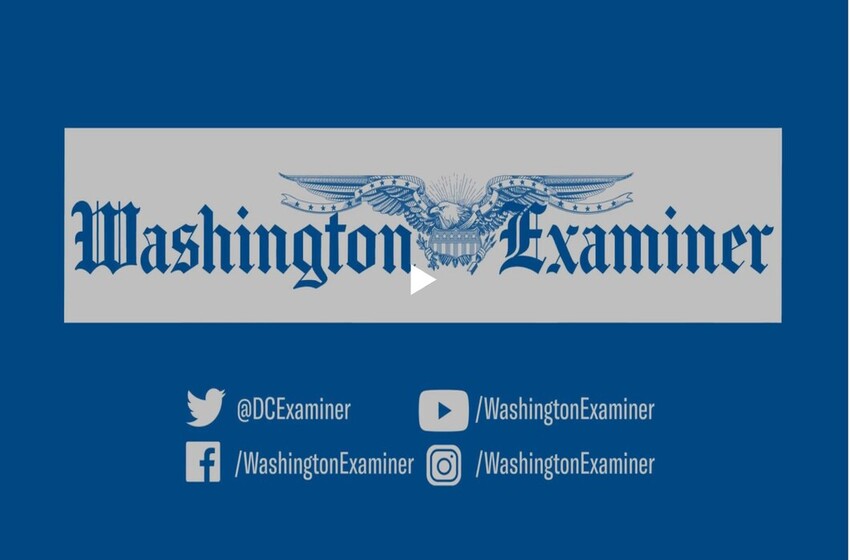What would President Joe Biden’s foreign policy look like?

Screenshot
by Tom Rogan | April 08, 2020
With Bernie Sanders ending his campaign on Wednesday, Joe Biden is now the presumptive Democratic Party nominee for president.
As we look toward the November election, one increasing area of focus will be on Biden’s foreign policy vision. The former vice president hasn’t yet fleshed out his foreign policy views in great detail, but we do have some ideas of what to expect.
On China, Biden has slowly adopted a more hawkish tone. This has included condemning Chinese trade practices and the communist regime’s undermining of stability and sovereignty in the South China Sea. But one challenge for Biden, at least in presenting himself as a more credible negotiator for American interests than President Trump, is his record under the Obama administration. After all, its support for the Trans-Pacific Partnership aside, which Biden may seek to rejoin, Team Obama’s policy toward China was centered around concessions and tolerance for Chinese excesses against U.S. interests.
Biden’s additional challenge here is that Trump’s China record is quite strong. Trump has confronted China’s cyberactivity, reached a trade deal with Beijing, and has advanced a more robust U.S. Navy presence in the South China Sea.
Moreover, as Americans learn what China knew but did not do in relation to the coronavirus outbreak, there is likely to be an increasing appetite for a stronger stance against Beijing. The question is, will Biden be able to offer such a policy in a convincing way?
How about North Korea and its leader Kim Jong Un?
Here, Biden distances himself from Trump in style, if not in substance. Like Trump, Biden seeks a diplomatic resolution to the North Korean nuclear crisis and is skeptical of any military options that might otherwise resolve it. But Biden says he would not meet with Kim unless there were preconditions for talks. Considering Kim’s belief that he can slowly but surely decouple Trump from his advisers (who suggest ratcheting up pressure on North Korea), it is likely that a Biden presidency would rapidly lead to resumed North Korean missile testing.
On Afghanistan, we would expect quite close symmetry between Trump and Biden. As Obama’s vice president, Biden was deeply skeptical of increased U.S. military force deployments to Afghanistan, believing that U.S. aspirations were detached from reality. Biden would thus be expected to double down on some form of a peace agreement with the Taliban, similarly pressuring the Afghan government to take additional steps to make a durable agreement possible. The question is whether Biden would adopt Trump’s approach of aggressively challenging the Taliban where the group fails to meet its own obligations.
What of Russia?
We already have good circumstantial evidence that the Russians have been digging into Hunter Biden’s activities in Ukraine, almost certainly in an effort to find information that might damage Biden’s campaign. That speaks to the fact that it’s not clear whether Russia will favor Biden’s victory over Trump’s reelection or whether Russia will simply attempt to create havoc in the election. And, beyond Trump’s often affectionate rhetoric toward Russian President Vladimir Putin, his policy toward Russia has undermined Putin’s interests more than did Obama’s policy. Note also that Biden’s stance on energy issues is firmly in Russia’s favor.
Still, considering lingering Democratic Party anger over Russian intrusions into the 2016 election and the disdain with which many Republican senators view Putin’s foreign policy, it is likely that a Biden victory would lead to increased sanctions on Moscow.
Europe, however, is surely crossing its collective fingers for a Biden win.
In large part, that’s because Biden is a far more reflexive supporter of NATO and the European Union than is Trump. The Europeans would also greatly welcome Biden’s return to the Paris Agreement.
Yet, it won’t all be smooth sailing. Biden would face his own challenges here as he sought to maximize U.S. interests. Recent European increases in defense spending would likely dissipate in the face of Biden’s less confrontational demand for that spending. We can say this with confidence in that both the George W. Bush and Obama administrations attempted a “speak softly” approach to getting increased European defense commitments, and both failed. European deference to China, especially on trade and telecommunications issues, will also pose an increasingly significant challenge to U.S. interests. Does Biden have the appetite to push back against the Europeans on those concerns?
What of the Middle East?
This will be interesting. Biden has adopted the general Democratic Party tone of major disenchantment toward Saudi Crown Prince Mohammed bin Salman. In turn, we would expect Biden’s victory to lead to a general decoupling of U.S.-Saudi interests, ultimately in Putin’s favor. We would also expect a Biden presidency to seek America’s restored involvement in the 2015 Iranian nuclear accord. That shift would consolidate the Iranian regime as it faces unprecedented financial, social, and public health pressures. Beyond the big two Middle Eastern powers, U.S. counterterrorism policy would likely remain generally the same as now, albeit with greater restrictions on more risky U.S. military operations.
Then there’s South America.
Here we would expect a general consistency in approach: support for counternarcotics efforts and consolidation of pro-American democratic governments such as Colombia. But less concerned than the Trump administration with tempering Cuban influence in the hemisphere, Biden is likely to adopt a more conciliatory strategy toward Nicolas Maduro’s Venezuelan regime.
On Africa, a Biden presidency would increase development assistance. But I wouldn’t expect a seismic shift in U.S. policy.
Where does this leave us?
Biden is going to have to flesh this out for us in the coming months. Ultimately, we won’t know his policies if and until he enters office. History teaches us that sitting in the big chair sometimes shifts one’s opinions dramatically.
















